 W
WThe International Age Rating Coalition (IARC) is an initiative aimed at streamlining acquisition of content ratings for video games, from authorities of different countries. Introduced in 2013, the IARC system simplifies the process of obtaining ratings by developers, through the use of questionnaires, which assess the content of the product. This new process reduces the costs of video game developers as they seek to obtain ratings for their products that are distributed digitally online.
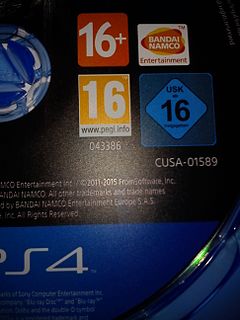 W
WA video game content rating system is a system used for the classification of video games based on suitability for target audiences. Most of these systems are associated with and/or sponsored by a government, and are sometimes part of the local motion picture rating system. The utility of such ratings has been called into question by studies that publish findings such as 90% of teenagers claim that their parents "never" check the ratings before allowing them to rent or buy video games, and as such, calls have been made to "fix" the existing rating systems. Video game content rating systems can be used as the basis for laws that cover the sales of video games to minors, such as in Australia. Rating checking and approval is part of the game localization when they are being prepared for their distribution in other countries or locales. These rating systems have also been used to voluntarily restrict sales of certain video games by stores, such as the German retailer Galeria Kaufhof's removal of all video games rated 18+ by the USK following the Winnenden school shooting.
 W
WThe Australian Classification Board is an Australian Government statutory body responsible for the classification and censorship of films, video games and publications for exhibition, sale or hire in Australia. The ACB was established in 1970 and was once part of the Office of Film and Literature Classification (OFLC), which was dissolved in 2006. The Department of Communications and the Arts provided administrative support to the ACB from 2006 until 2020, when it was merged into the 'mega department' of the Department of Infrastructure, Transport, Regional Development and Communications. Decisions made by the ACB may be reviewed by the Australian Classification Review Board. The ACB now operates under the Commonwealth Classification Act 1995. The ACB is made up of a director, a deputy director, and three other board members, appointed by the government for three- or four-year terms, and temporary board members. The ACB is located in Sydney, New South Wales.
 W
WThe British Board of Film Classification is a non-governmental organisation founded by the film industry in 1912 and responsible for the national classification and censorship of films exhibited at cinemas and video works released on physical media within the United Kingdom. It has a statutory requirement to classify all video works released on VHS, DVD, Blu-ray, and, to a lesser extent, some video games under the Video Recordings Act 1984. The BBFC was also the designated regulator for the UK age-verification scheme which was abandoned before being implemented.
 W
WThe Computer Entertainment Rating Organization (CERO) is a Japanese entertainment rating organization based in Tokyo that rates video game content in console games with levels of ratings that informs the customer(s) of the nature of the product and what age group it is suitable for. It was established in June 2002 as a branch of Computer Entertainment Supplier's Association, and became an officially recognized nonprofit organization in December 2003.
 W
WThe Conseil supérieur de l'audiovisuel, abbreviated CSA, is a French institution created in 1989 whose role is to regulate the various electronic media in France, such as radio and television. The creation of the Haute Autorité de la Communication Audiovisuelle was a measure found in the Socialist Party's electoral program of 1981, called 110 Propositions for France.
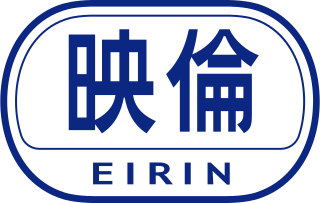 W
WEirin (映倫) is the abbreviated name of the Film Classification and Rating Organization , Japan's movie regulator. Eirin was established on the model of the American Motion Picture Producers and Distributors Association's Production Code Administration in June 1949, on the instructions of the US occupation force. It classifies films into one of four categories depending on their suitability for viewing by minors of different ages.
 W
WThe Entertainment Software Rating Association (ESRA) is a self-regulatory organization that assigns age and content ratings in Iran. The system was established in 2007 by the Iran National Foundation of Computer Games and has the status of a research project.
 W
WThe Entertainment Software Rating Board (ESRB) is a self-regulatory organization that assigns age and content ratings to consumer video games in North America. The ESRB was established in 1994 by the Entertainment Software Association, in response to criticism of controversial video games with excessively violent or sexual content, particularly after the 1993 congressional hearings following the releases of Mortal Kombat and Night Trap for home consoles and Doom for home computers. The industry, pressured with potential government oversight of video game ratings from these hearings, established both the IDSA and the ESRB within it to create a voluntary ratings system based on the Motion Picture Association of America film rating system with additional considerations for video game interactivity.
 W
WThe Federal Communications Commission (FCC) is an independent agency of the United States government that regulates communications by radio, television, wire, satellite, and cable across the United States. The FCC maintains jurisdiction over the areas of broadband access, fair competition, radio frequency use, media responsibility, public safety, and homeland security.
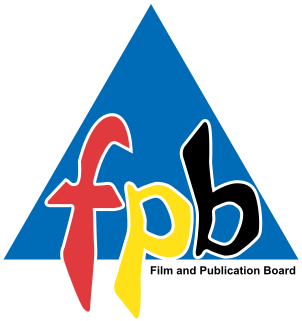 W
WThe Film and Publication Board, is a content-classification and regulation authority in South Africa, operating under the Minister of Communications. The FPB was established in 1996 under the Films and Publications Act, ostensibly to tackle issues of child pornography and child abuse, as well as to provide ratings to publicly consumed media such as movies, music and television programs. Under these directives, its mandate can be considered one of state censorship.
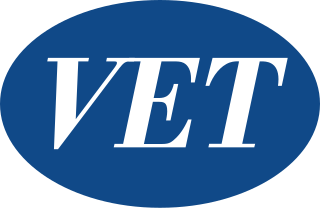 W
WThe Finnish Board of Film Classification was an official institution of the Finnish Ministry of Education. From 1946 until the end of year 2011, the VET/SFB was responsible for inspecting and rating the content of movies and video games. In the beginning of 2012, the VET/SFB was dissolved and its functions were transferred to the Finnish Centre for Media Education and Audiovisual Media, likewise operating under the Ministry of Education.
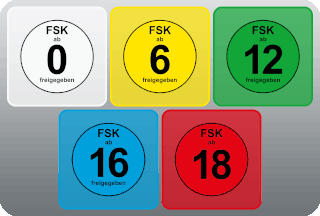 W
WThe Freiwillige Selbstkontrolle der Filmwirtschaft is a German motion picture rating system organization run by the Spitzenorganisation der Filmwirtschaft based in Wiesbaden.
 W
WThe Irish Film Classification Office (IFCO) is the organisation responsible for films, television programmes, and some video game classification and censorship within Ireland. Where restrictions are placed by the IFCO, they are legally binding.
 W
WThe Japan contents Review Center is a Japanese video and game rating organization. It is a voluntary organization to ensure adherence to Japanese obscenity laws, which prohibit any display of genitals. This is accomplished by a mosaic pixelation applied to videos and games being sold in Japan.
 W
WThe Media Development Authority was a statutory board of the Singapore Government, under the Ministry of Communications and Information (MCI).
 W
WThe Motion Picture Association (MPA) is an American trade association representing the five major film studios of the United States, as well as the video streaming service Netflix. Founded in 1922 as the Motion Picture Producers and Distributors of America (MPPDA) and known as the Motion Picture Association of America (MPAA) from 1945 until September 2019, its original goal was to ensure the viability of the American film industry. In addition, the MPA established guidelines for film content which resulted in the creation of the Motion Picture Production Code in 1930. This code, also known as the Hays Code, was replaced by a voluntary film rating system in 1968, which is managed by the Classification and Rating Administration (CARA).
 W
WThe Motion Picture Association – Canada or MPA-Canada is a film industry trade group which speaks for and represents the major U.S. motion picture studios and streaming video company Netflix in Canada for films, television, videos and DVDs. It is the Canadian counterpart of the MPA.
 W
WThe Movie and Television Review and Classification Board is a Philippine government agency under the Office of the President of the Philippines that is responsible for the classification and review of television programs, motion pictures and home videos.
 W
WThe National Bureau of Classification (NBC), previously the Film Censor Board of Maldives, is a government office founded on 21 May 1956 with the objective of presenting and promoting cinema and theatrical performances for the benefit of the Maldivian people.
 W
WThe National Media Council (NMC) is a federal institution of the United Arab Emirates (UAE) that was established by virtue of Federal Law No. 1 of 2006. It promotes and supports all media-related initiatives and activities in the UAE and abroad. Goals set for the council are “Providing an integrated regulatory environment conductive to the development of the media sector in the UAE, highlighting the UAE accomplishments in media both nationally and internationally and ensuring that all administration services are delivered with high quality, efficiency and transparency”.
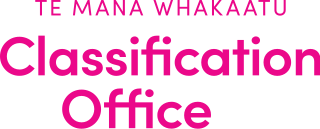 W
WThe Office of Film and Literature Classification is an independent Crown entity established under Films, Videos, and Publications Classification Act 1993 responsible for censorship and classification of publications in New Zealand. A "publication" is defined broadly to be any thing that shows an image, representation, sign, statement, or word. This includes films, video games, books, magazines, CDs, T-shirts, street signs, jigsaw puzzles, drink cans, and campervans. The chairperson of the OFLC is the Chief Censor, a position that is selected by the Governor-General on the recommendation of the Minister of Internal Affairs with the agreement of the Minister of Women's Affairs and the Minister of Justice. As of 8 May 2017, the current Chief Censor is David Shanks.
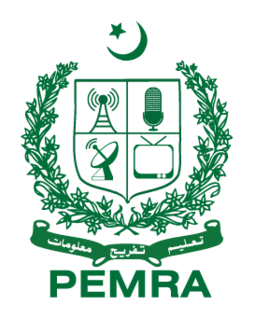 W
WPakistan Electronic Media Regulatory Authority (PEMRA) is an independent and constitutionally established federal institution responsible for regulating and issuing channel licenses for establishment of the mass media culture, print and electronic media.
 W
WThe Régie du cinéma was a provincial film classification organization responsible for the motion picture rating system within the Canadian province of Quebec; of which its roles were merged into the Government of Quebec's Ministry of Culture and Communications on 1 April 2017. Its mandate was to classify and approve films for distribution to Quebec's movie theatres and home video outlets. Its purview devolved from the Cinema Act. As of 2010, the Agency had a net income of 7 million dollars and has accumulated more than 85 million dollars in cash in their bank account.